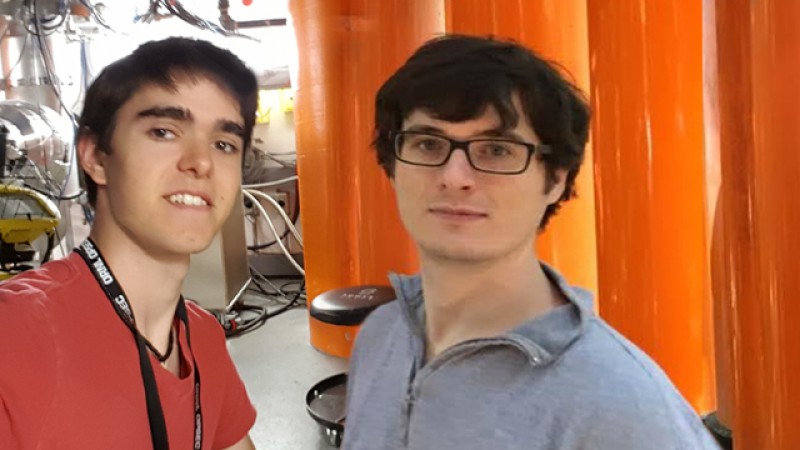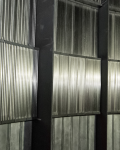From a field of many, Michael Waddell and Patrick Nave took the challenge of ORNL's Challenge Program this summer head-on. Michael, from Columbia University, and Patrick, from Florida State University, ended their internships last week with both national laboratory experience and successful research projects.
The ORNL Challenge Program is not a traditional internship opportunity. ORNL scientists develop specific research challenges and interested students submit their own solutions to the challenge. Authors of the best solutions are invited to intern at ORNL and design an experiment to conduct during their time at the Lab.
"As a hobby, I like to look for esoteric unsolved problems in math and physics, things that people haven't looked at in awhile and remain open, and try to solve them," Michael says. "I came across the Challenge program just by luck and they had an open question that was unsolved, so I came up with a way of solving it mathematically and they liked it."
Michael developed a method of machine learning to identify patterns in the data collected from the Spallation Neutron Source. His software, Sisyphus, analyzes neutron imaging data, which is much less dense than raw data, to find trends and features in seconds, rather than hours or days.
"The open problems we usually encounter are the big grand challenges, but we never talk about the smaller problems that are easier to tackle in between. There are thousands of those problems and no one knows what type of applications they have," Michael says. "This was my attempt to bridge what I was learning at school about these bigger problems with the little things we learn about but never see."
Patrick also worked at SNS, studying how to discern different features in neutron scattering datasets. The amount and complexity of neutron data has increased exponentially since the days when data was hand-recorded, he says, requiring a better understanding of our instruments and new methods of recording scattering information.
Neither one of them had ever used neutrons, so much of their internship was spent getting an immersive, hands-on education.
"I got a crash course in neutron science," Patrick says. "I have a physics background, but I didn't have any background in condensed matter. I had a general idea, but I got a lot of information here."
Michael and Patrick gave credit to their mentors, Ian Anderson, Martin Mourigal and Matthew Stone, for being essential to the success of the Challenge Program and the quality of the work the two performed at ORNL. —Sean Simoneau, ORNL




